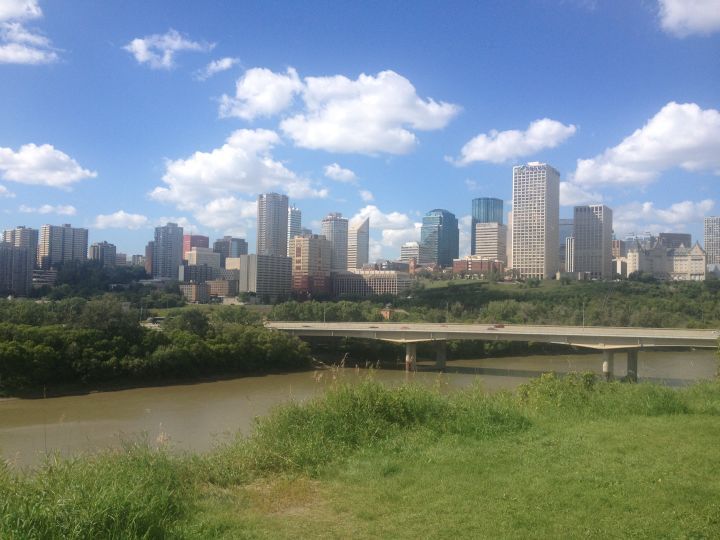Job seekers continue to flee Alberta for other parts of Canada.

Statistics Canada said the province has lost people to the rest of Canada for eight consecutive quarters, with the net outflow over the last two years totalling 30,239, according to numbers released Wednesday.
It’s a whole different story from before the recession when during that growth spurt we saw Alberta gain 131,669 between July 2010 and July 2015.
The City of Edmonton economist, John Rose said the saving grace locally is people are more willing to stick around Metro Edmonton on the job hunt.
“So far Edmonton has not seen significant interprovincial out-migration,” he said Wednesday afternoon. “We continue to see relatively strong international migration into both Edmonton and Calgary and to Alberta as a whole. And we’ve got a very young demographic here and that’s helped to boost the natural population growth.”
There were 108,607 more people in Alberta as of July 2017 compared to two years ago, the Statistics Canada report said.
Rose is forecasting population growth for Edmonton in 2017 to be slightly under two per cent, while in the rest of Alberta is should be closer to one per cent.
The major contributing factor in this eight quarter trend that saw 15,131 more people leave Alberta for other parts of Canada than came here between July 2016 and July 2017 is the unemployment rate. Rose said it’s a gap that likely won’t close for another year.
“That gap actually grew last month with the province moving up to around 8.1 per cent unemployment and Canada falling to 6.2 per cent unemployment. You’re going to continue to see net out-migration from the province, particularly to Ontario and to B.C.”
“It’s going to be a long slow process to grind that unemployment rate down. We’ve seen some improvement in oil prices, particularly over the last couple of weeks. But we’re still down at $52 a barrel, and until you get those oil prices back up to levels well in excess of $60 – $70 you’re not going to see very dynamic employment growth.”
Other construction projects will help, especially generated from the public sector like the Valley Line LRT, and transformation of the Yellowhead Trail.
“We’re talking about 12 to 24 months minimum before we can get the unemployment rate in Alberta and in Edmonton down to levels where it will start to impact on the negative out-migration.”
He also said there are encouraging numbers for building permits away from those big ticket projects. “I”ve been pleasantly surprised at the level of residential construction activity. It’s been reasonably robust particularly on the single family side of things.”
Rose said we’re not likely to see the boom hit again like what was the case in 2012-2014. Now it’ll be slow steady growth begining mid to late 2018.






Comments